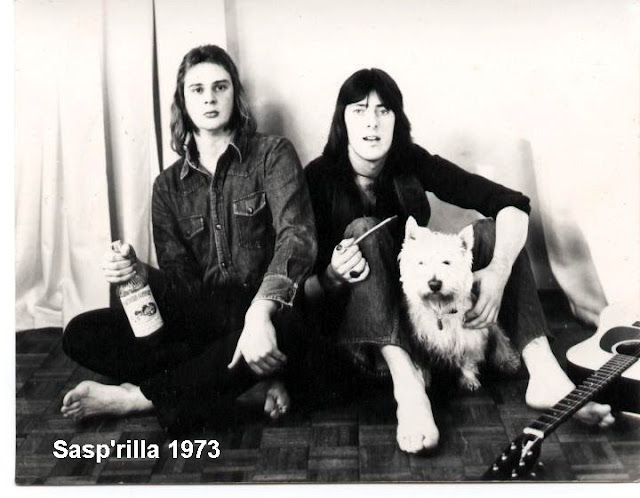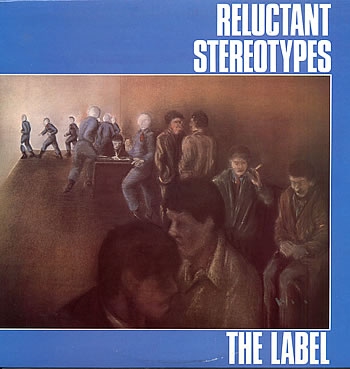Ska'd for Life - Two Tone Mural, Pool Meadow Coventry.
Photos by Pete Clemons and Pete Chambers.
The Ska'd For Life mural or mosaic (named after Horace Panter's autobiography) was commissioned by Coventry City of Culture as a 'Welcome to Coventry - Celebration of the City's Involvement in Two Tone and the decades long thriving Coventry music scene.
The artist was Carrie Reichart, a contemporary artist, who works from a studio in
London, A member of the Craftivism movement, Reichardt uses murals, ceramics, screen-printing and graphic design in her work. She is a dedicated advocate of the movement and curated one of the few exclusively Craftivist exhibitions in the UK.
 |
| Carrie Reichardt |
London, A member of the Craftivism movement, Reichardt uses murals, ceramics, screen-printing and graphic design in her work. She is a dedicated advocate of the movement and curated one of the few exclusively Craftivist exhibitions in the UK.
The time scale was tight - four months to create and 4 days to put the display up with her team. According to the Coventry Telegraph "The artwork was created alongside two Coventry schools with 90 pupils involved. Pupils were invited to decorate their own sections of the mural, giving the community a part to play. Pupils from Frederick Bird, St. Mary and St. Benedict Catholic Primary school were each given a clay star to decorate. They decorated as they liked, then the stars were glazed and added to the feature,"
Carrie Reichardt trained at Kingston University and received a degree in Fine Art from Leeds Metropolitan University. You can read more about Carrie and her work on her website https://carriereichardt.com/ and on Wikipedia
Roddy Byers / Radiation and bands below the cover of Ruth Cherrington's Dirty Stop Outs of Coventry 1970's which was also a source of material. Ray King of the Ray King Soul band is in there too.
Riddy's Surplus Store where some of us got our Trench Coats in the early 70's - hippy days and Rioco and the Holyhead Youth Centre where both an early form of what was to become Selecter practiced in 1974 with Charley Anderson and co, and the Coventry Automatics, Chapter 5, Jah Baddis Sound System, Pharaoh's Kingdom, Ray King's Nite Train and the Hobo Workshop gigs. The blue letter in the middle was from Horace Panter advertising in Trev Teasdel's magazine Hobo for a 'Happy band' in 1973.A lot more in that photo.
Vince Holliday singer with Coventry's first rock n Roll band the Vampires and creator of Friars Promotions who put on bands and discos in most of the M & B pubs in Coventry in the 60's and 70's.
This photo by Sheila Medlock
The Swinging Cats
Riot Act - Alternative Sounds
Neville and Sugary Staple.
Pete and Julie Chambers with Frank Ifield
Trev Teasdel and John Bargent (Bo) tiles - they started Hobo Coventry's own Music and arts Magazine in 1973 and the Hobo Music Workshop gigs at the Holy Head youth Centre 1974 to liven up the music scene, promote new bands and artists. Cutting from On the Scene supplement Coventry Telegraph June 1973. on the cover of Hobo is Mark Rider of Sasp'rilla now with Skawaddy.
Photo by Carrie Reichardt
In September 1973 Horace Panter sent this ad through to Trev Teasdel advertising for a 'Happy band'. Horace had arrived in Coventry from Kettering, Northhamptonshire in autumn 1972 to do an Art degree at Coventry's Lanchester Polytech, so had been in the city about a year and just starting off on bass. The address at the bottom of Binley Road on the corner of Gulson Road is where Jerry Dammers and his girlfriend Val Webb (now Haudiquet). Val later was the second singer with the Two tone band The Swinging Cats. jerry was also at the Lanch and Pauline Black was also there doing Social studies. There was a delay owing to finances or lack of them, so Horace's ad didn't get put in until Feb 1974 but Horace had found a band by then (see his book for details). Ironically it was published in the Two Tone blue issue of Hobo (below), two tone being a printers / art term at that stage for either black on white or as in this case dark blue ink on lighter blue paper - or whatever colour you wanted. In this issue we featured an Op art graphic by Bridget riley who had an exhibition in Birmingham February 1974. Horace has said in a video that the black and white Two Tone squares came from Bridget Riley and he saw the exhibition in Birmingham -not sure if Horace saw the piece in hobo but he was studying art at the Lanch so may have heard of it independently but it's all a bit prescient !
A graphic by Op artist Bridget Riley that influenced his work on part of the Two Tone design later on.
A second letter by Horace to hobo after the ad was printed asking for possible places for his new band to play - I think I sent some suggestions.
Close up of the Hobo Workshop flyer by Trev Teasdel in 1975 - we started off at the Holyhead Youth Centre in 1974 with Fission - a Johnny Adams band (John later paly lead with Squad after Terry Hall had left. Analog played their first gigs at the Hobo Workshop - Jazz Rock - with Steve Edgson and most of the band formed the first version The Reluctant stereotypes. Dave Pepper of Coventry punk band The X Certs had his first gig there with Phoenix and Neil O'Connor's band Midnight Circus (later known as the Flys) had their first gigs there. Neol Davies came to the Holyhead to organise a jam session for us. Charley Anderson and elements of what became Chapter 5 and then Selecter were practicing in the basement. I told Neol about them and he went down to try and get them involved with the jam session but staying in the basement where Desmond Brown taught him to skank on guitar. Neol later organised a jam session for us at the Golden Cross in 1975 with John Gravenor of Wandering John, Nikki Hawkswell of Three AM, Andy cairns, Phil Knapper (older brother of Stu Knapper, later of punk band Riot Squad. Charley and Desmond were in the audience at the Cross.
Hobo started in June 1973 and this cutting is featured in the mural. Coventry music scene was in a lull - many top bands had split up, like Indian Summer, Dando Shaft, Wandering John. The Broadgate Gnome editorial team had moved to Brighton and the Coventry Arts Umbrella club had had their premise demolished by the council! we started Hobo to liven things up and promote new bands and were interviewed by The Coventry Evening telegraph on the launch of the first Hobo.
Finally here is photographic piece from the Coventry Telegraph on the mural https://www.coventrytelegraph.net/news/coventry-news/incredible-2-tone-mosaic-unveiled-20918498?fbclid=IwAR0dpL7_Eaxyw3FZJDiLWOmW_amX5Oy8xvQRPxy-_538peGjRY9I2gIIkmI



































